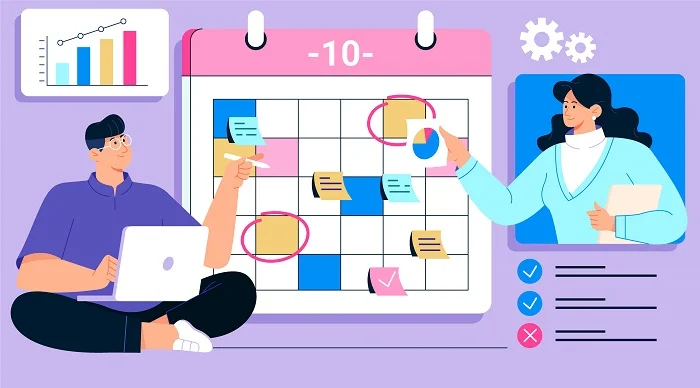Receiving a negative performance review can be tough to accept.
It never feels good to hear that you haven’t been up to mark (and even if you know a bad review is on the horizon because of certain unspeakable factors) hearing your manager gently tell you that your performance hasn’t been up to par over the course of the year can be nothing short of devastating. But that is the nature of work. Even good performers occasionally stumble. And sometimes, despite our best efforts, we might not get the results we seek. It’s another matter if you haven’t been putting in the effort and were expecting a good review. In that circumstance, it might be worthwhile to evaluate your priorities and or introspect about why you are working or feeling the way you currently are.
But in this article, we are going to focus on what to do and what not to do after receiving a negative performance review.
Don’t Catastrophize
Of course, this is easier said than done but it is the first thing we need to keep in mind. After an instance of negative feedback, it can be very easy to spiral into negative thinking. It’s not long before this spiral can become a loop of self-recrimination.
However, this is not the correct way to approach negative feedback. Carefully re-evaluate. It helps to look back at work over the course of a certain period. Ask your manager for examples. Perhaps there are certain points you can refute. And perhaps there are certain points you can accept. Either way, do not assume it is all on your shoulders and that you are a terrible employee. Instead of catastrophizing, reflect deeply.
Don’t Respond Immediately
Ask for some time to process the meeting. Be sure to set up a follow-up meeting. Your manager will not mind. Remember, they too may have been in the same place you once were. Handling a negative performance review in a sensible fashion while not being immediately reactionary is a valuable skill to have. It indicates maturity and thoughtfulness. This is not to say that you should listen to everything and refute nothing. Use rational thought to guide your words. In other words, pick the battles you want to fight. There’s no necessity to fight everything or accept everything unless of course, yours is an outlier of a situation that involves a bad manager and worse review practices.
Don’t Let It Overwhelm You
Once again, this is easier said than done. Obviously, negative reviews are a difficult pill to swallow (especially if you are dealing with one for the first time after years of having been a consistent performer).
However, all the trite phrases and proverbs you’ve heard your elders tell you over the years are finally going to make sense now, much to your chagrin. Failure will help you appreciate all your successes better. Failure teaches you how both sides of the equation are. It can install a sense of caution, temper aggression and even plant our feet firmly on the ground. Contrary to popular belief, failure is not a permanent blemish on your career. You can bounce back from 99% of the errors you have made.
The tag might follow you for a while, but subsequent good work will not only help the tag fade, but it will also help showcase your determination and hard work, and who knows, even an example of a success story to be admired for the years to come.
Don’t Ignore It
There’s a difference between maintaining a positive and upbeat attitude and willful ignorance. Do not make the mistake of being foolish and ignoring a negative performance review. At best, you really might be shrugging off minor mistakes or criticisms. At the worst, you might be ignoring blaring warning signs.
A negative performance review can be considered a reckoning. Use it to reflect upon where you currently are at. A negative review can help you ascertain quite a few outcomes.
- Maybe you aren’t a good fit for the job. That’s alright. You can consider a change.
- Maybe this new role isn’t your cup of tea. No harm in going back to your old role.
- Maybe you and your manager have very different working styles. There’s no way to reconcile this except by making your peace or choosing to move on.
- Maybe you overloaded your plate. You can always re-negotiate your responsibilities.
It is important to remember that all these instances are plausible and they are probably not the first time your manager has run up against them. There is no weakness in admitting that things aren’t working out for you the way you expected them too. Sharing this view with your manager could help both of you have an insightful conversation about what your next move is.
Don’t Make it Personal
Many hard things are easier said than done. A negative performance review is not a direct reflection of who you are. But it is a mirror of some of your abilities. The moment it becomes a personal failure, that’s when it stops becoming a necessary aspect of work and becomes an obstacle that you cannot overcome.
I wouldn’t say that everyone should experience negative reviews. However, it is important to see the other side of things. The fear of failure can oftentimes be a paralyzing thing. It is worth noting how you deal with failure. There’s no bigger lesson than learning how to overcome failure. And some people who are well acquainted with this lesson will have no problem moving on from failure. For others, it might take some work, but it can be done.
Do Listen and Understand
Before you say anything or react to the review, listen to your manager and make a concentrated effort to understand what they are saying. If your manager hasn’t given you cause to doubt them and their opinions before, then there’s probably a grain of truth to what they are saying.
Do Ask for Help If You Need It
This is the best thing you can do after receiving a negative performance review. Asking for help to get better shows your manager you care. It might be difficult to ask for help, but asking for help is not a weakness, but rather you admitting that things aren’t so hot right now and you need some guidance to get through this.
Discuss an improvement plan with your manager. They probably have a few ideas as to how to help. Everyone knows that it is not possible for any employee to be superhumanly good. And neither should anybody aim to be one either. That way lies the specter of burnout.
Instead, ask for help, put the review at the back of your mind, and keep going on. The past is not something you can change. But the future is something you certainly can control.
Want to know how Engagedly can revamp performance management at your organization?
Request a live demo from our experts and find out!
Request A Demo
Author
Srikant Chellappa
CEO & Co-Founder of Engagedly
Srikant Chellappa is the Co-Founder and CEO at Engagedly and is a passionate entrepreneur and people leader. He is an author, producer/director of 6 feature films, a music album with his band Manchester Underground, and is the host of The People Strategy Leaders Podcast. He is currently working on his next book, Ikigai at the Workplace, which is slated for release in the fall of 2024.






